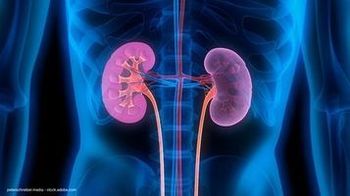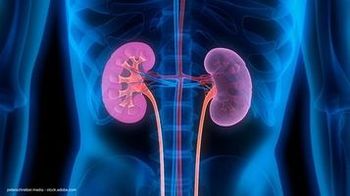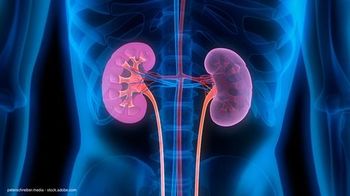
Bariatric surgery: Does it raise stone disease risk?
Atlanta-With the number of bariatric surgery procedures being performed each year rising exponentially, urologists are wondering what is their risk for causing stone disease. Two studies presented at the AUA annual meeting here explored this issue, with somewhat conflicting results.
Researchers from the University of Chicago and Litholink Corp., Chicago, conducted a retrospective study evaluating urine chemistry data from stone formers who had undergone modern bariatric surgery procedures (132 patients), idiopathic stone formers (2,048), jejunoileal bypass (JIB) stone patients (27), and normal, non-stone-forming controls (166). They found that the rate of severe hyperoxaluria (>100 mg/d) in the bariatric surgery patients was higher than among routine stone formers (23% vs. 0.5%), approached that seen in patients after JIB, and did not appear to be accounted for by the effect of obesity in increasing stone risk, reported John R. Asplin, MD, clinical associate professor of medicine at the University of Chicago.
Only one of the bariatric surgery patients had a history of stones predating the weight loss procedure. For the entire group, the time between surgery and first onset of stones averaged 3.5 years. The control groups were derived from the University of Chicago stone clinic.
Comparisons of the 24-hour urine chemistry data showed that the risk factors for urolithiasis were clearly different among the bariatric surgery patients than among the normal subjects and idiopathic stone formers. With the data adjusted for gender, body weight, creatinine excretion, and age, mean oxalate excretion was significantly higher among the JIB patients than among the bariatric surgery group (102 vs. 83 mg/d), but the value in the bariatric surgery stone formers was significantly higher than that measured in the idiopathic stone formers (39 mg/d) and normal controls (34 mg/d).
"Compared with the JIB patients, the moderately higher calcium, slightly lower urine volume, and relatively high oxalate excretion in the bariatric surgery patients seemed to have contributed to their higher calcium oxalate supersaturation," Dr. Asplin said.
Newsletter
Stay current with the latest urology news and practice-changing insights — sign up now for the essential updates every urologist needs.





